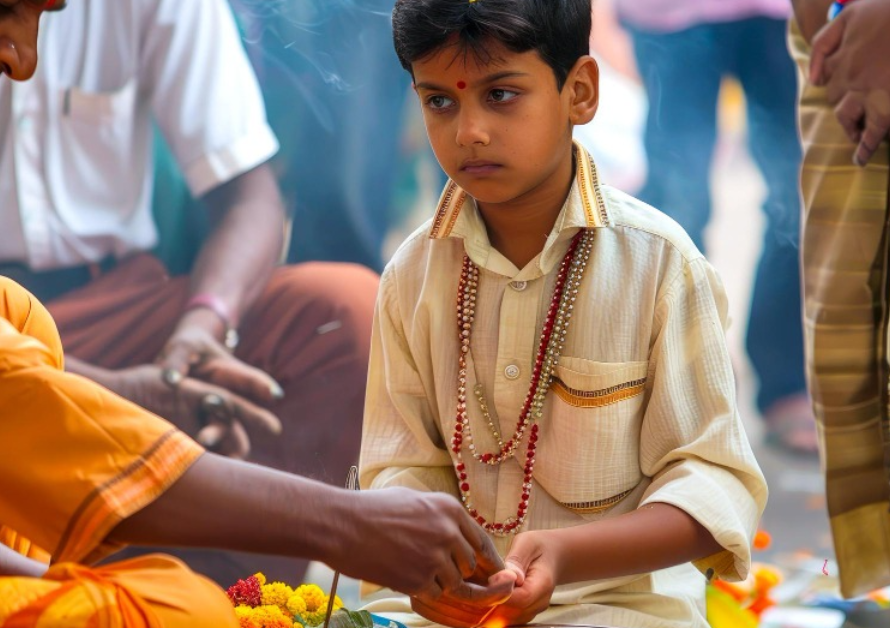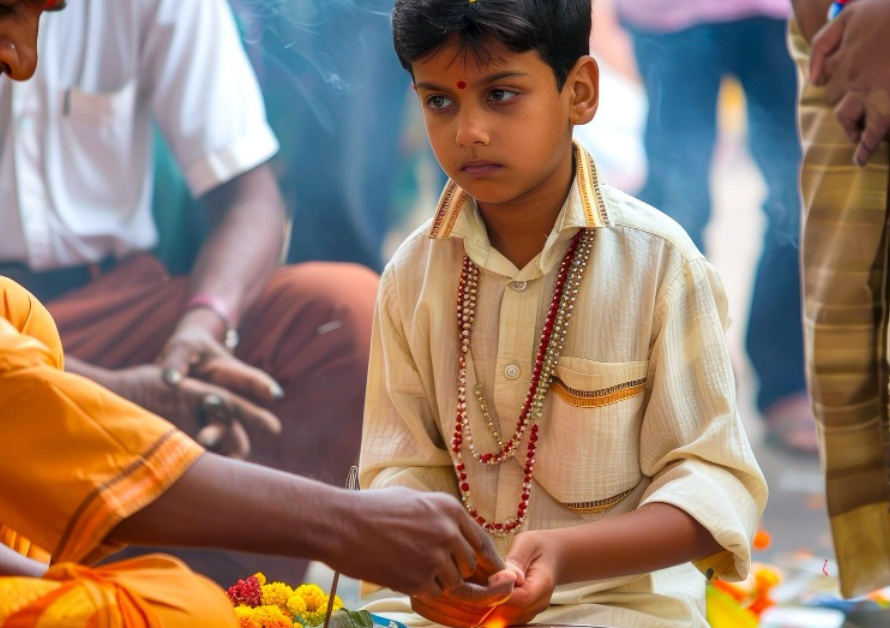There is a supreme power that governs humanity and the universe, known by different names—God, Ishwar, Allah, Khuda, Bhagwan, etc. These names are simply expressions of different cultures and languages, but the concept remains the same.
If we accept that all human beings are children of the same God, then naturally, we are all brothers and sisters, and this entire world is our family.
That is why Sanatana Dharma teaches:
“Vasudhaiva Kutumbakam”
(The whole world is one family.)
If we truly embrace this principle, there will be no place for hatred, division, or conflict.
The Role of Religions in Humanity and Their Limitations
There are multiple religions in the world—Hinduism, Christianity, Islam, Sikhism, Jainism, Buddhism, Zoroastrianism, etc. But religion is not just about rituals and worship; it also shapes ethics, moral values, and the direction of society.
A true religion is one that upholds and nurtures humanity.
👉 Truth, non-violence, compassion, service, love, empathy, and righteousness should be the foundation of every religion.
👉 If a religion promotes these values, it is beneficial for humanity.
👉 But if a religion encourages oppression, forced conversions, or terrorism, then it ceases to be a religion and becomes a force of destruction.
Sanatana Dharma has always prioritized religious tolerance and humanity.
Swami Vivekananda, in the 1893 Chicago World Parliament of Religions, said:
“We must not criticize any religion but rather understand and respect all religions in their true essence.”
He emphasized the need for a “Universal Religion” and “Value Education” to establish peace and harmony across the world. But even after 150 years, his dream remains unfulfilled.
The Fundamental Principles of Humanity (Manav Dharma)
Every individual should embrace certain fundamental principles to lead an ideal life. These principles, known as virtues of righteousness (sadachara), are essential for personal growth and for building a peaceful and prosperous society. They can be categorized into four main groups: Morality, Self-discipline, Service & Charity, and Spiritual Knowledge & Devotion.
🔹 1️⃣ Morality: The Foundation of a Noble Life
A moral life is based on truth, non-violence, and honesty. By following these principles, a person earns genuine respect and inner peace.
✅ Truth (Satya): Always speak the truth and stand by it. Falsehood may bring temporary benefits but leads to long-term harm.
✅ Non-violence (Ahimsa): Do not harm any living being physically, mentally, or emotionally.
✅ Honesty (Nishkapatata): Stay away from deception and fraud. Honesty is the greatest wealth.
✅ Non-stealing (Asteya): Do not steal or exploit others; live with integrity.
✅ Modesty (Lajja): Feel hesitation in doing wrong and uphold moral conduct.
✅ Humility (Amanitva): Free yourself from the desire for recognition and honor. True greatness lies in humility.
✅ Cleanliness (Shaucha): Maintain both internal and external purity. Purity of mind, speech, and actions is true cleanliness.
🔹 2️⃣ Self-discipline: Control Over Desires and Mind
Only those who control their mind and senses can attain true peace and happiness.
✅ Self-restraint (Brahmacharya): Maintain control over desires and senses. A disciplined life leads to balance and fulfillment.
✅ Mind Control (Shama): Keep the mind from wandering and stabilize it through meditation and self-discipline.
✅ Sense Control (Dama): Discipline the senses and avoid indulgence in unnecessary desires.
✅ Tolerance (Sahanasheelata): Learn to endure hardships and forgive others’ mistakes with patience.
✅ Contentment (Santosha): Be satisfied with what you have; endless desires only bring suffering.
✅ Austerity (Tapa): Develop endurance and the ability to withstand hardships with perseverance.
✅ Egolessness (Ahamkar-rahit Jeevan): Let go of the feeling of superiority over others.
🔹 3️⃣ Service and Charity: The True Purpose of Life
A true human being is one who not only works for personal success but also contributes to the welfare of society and those in need.
✅ Service (Seva): Help others selflessly. True fulfillment lies in serving humanity.
✅ Sacrifice (Yajna): Let go of selfishness and ego. Working for the welfare of others is the highest form of sacrifice.
✅ Charity (Dana): Share a portion of your wealth and resources for the greater good. True charity includes giving wealth, knowledge, and time to uplift others.
🔹 4️⃣ Spiritual Knowledge & Devotion: The Path to Liberation
The ultimate goal of human life is not merely material success but spiritual progress and liberation (moksha).
✅ Faith (Shraddha): Have unwavering trust in righteousness and truth. Faith leads us toward the Divine.
✅ Self-study (Swadhyaya): Read and reflect upon spiritual texts and wisdom for self-improvement.
✅ Inner Peace (Shanti): Cultivate and practice peace both internally and externally.
✅ Universal Love (Prema): Love all beings unconditionally. Love is the greatest power of humanity.
All religions emphasize these virtues.
But when a religion promotes violence, intolerance, and forced conversions, it no longer serves humanity.
Religious Intolerance and Global Unrest
Today, religious intolerance, terrorism, and forced conversions have become the primary causes of global unrest.
⚠️ Christian missionaries are luring poor people with money and material benefits to convert them.
⚠️ Islamic radicals are using terrorism, jihad, and violence to forcibly convert Hindus and others to Islam.
⚠️ Millions of Hindus in India, Pakistan, and Bangladesh have been forcibly converted to Islam.
Now, the question arises—
👉 Can religions that promote intolerance, conversion, and violence truly be called a part of humanity?
A true religion should…
✔️ Teach tolerance, not fanaticism.
✔️ Promote love and service, not hatred and terrorism.
✔️ Encourage self-improvement, not forced conversions.
Religious Tolerance is Essential for World Peace
If all religions follow the principles of humanity, global conflicts will cease to exist.
🔹 Religious tolerance is the only way to achieve world peace.
🔹 We must educate our future generations not only in academics but also in ethics, culture, cleanliness, patriotism, and self-reliance.
🔹 We must oppose religious conversions and extremism while protecting Indian culture and Sanatana Dharma.
What Next?
🔹 Are Islam and Christianity truly humanitarian if they promote conversions and intolerance?
🔹 How do we find true happiness and inner peace?
🔹 Should we launch large-scale campaigns to awaken Indian society?
Jai Bharat, Jai Sanatana!
for more blogs visit our website https://saveindia108.in/







